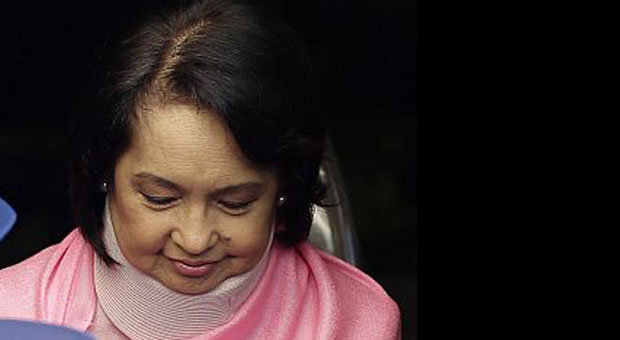The Supreme Court has extended the status quo ante order (SQAO) it issued against the Sandiganbayan that stopped former President and now Pampanga Rep. Gloria Macapagal-Arroyo’s plunder trial regarding the P366-million Philippine Charity Sweepstakes Office (PCSO) fund anomaly.
READ: SC stops Gloria Arroyo’s plunder trial for 30 days
SQAO has been extended up to February 19, 2016.
“The Court issued a SQAO for 90 days or until February 19, 2016 directing the parties to observe the status quo prevailing before the issuance of the assailed orders of the Sandiganbayan dated April 6, 2015,” high court Information Chief Theodore Te said at a press conference on Tuesday.
The high court issued a ruling after Arroyo filed a 115-page petition asking the high court to reverse the final ruling of the Sandiganbayan First Division last February denying her bail motion in the remaining plunder case against her involving the P366-million PCSO fund anomaly.
Arroyo, 68, is detained at the Veterans’ Memorial Medical Center plunder over the alleged misuse of P366 million in intelligence funds for the PCSO from 2008 to 2010 for personal gain.
Last April, Arroyo already appealed the Sandiganbayan ruling.
In her latest motion where she is being represented by former solicitor-general Atty. Estelito Mendoza, she cited the recent report from the United Nations Technical Working Group on Arbitrary Detention recommending the reconsideration of Arroyo’s application for bail “in accordance with the relevant international human rights standards.”
READ: ‘UN body: Gloria Macapagal-Arroyo’s detention arbitrary, illegal’
Arroyo said the UN panel’s position was consistent with the petition for bail and demurrer to evidence her defense lawyers filed before the Sandiganbayan First Division.
In her petition, Arroyo cited her deteriorating health in asking the high court to reverse the rulings of the Sandiganbayan.
Arroyo said the high court had ruled in many cases that detainees are entitled to bail “if their continuous confinement during the pendency of their case would be injurious to their health or endanger their life.”
The petitioner invoked the case of De La Rama, where the high court ruled that hospital arrest “fell short of meeting or accomplishing the humanitarian purpose or reason underlying the doctrine adopted by modern trend of courts’ decisions which permit bail to prisoners, irrespective of the nature and merits of the charge against them, if their continuous confinement during the pendency of their case would be injurious to their health or endanger their life.” RAM
